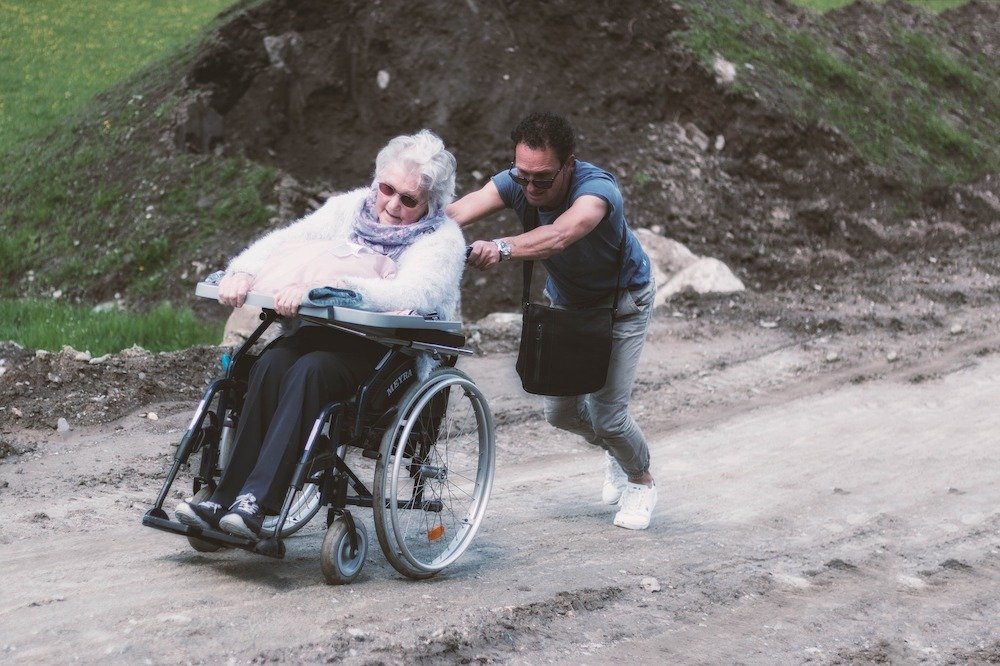Stop wondering; here are the most common signs of memory loss which everyone should be familiar with. These can be the beginning signs of dementia, which is why you should definitely mark them down.
Memory loss, which is at times called amnesia can be described as an anomalous degree of forgetfulness or the inability to remember past events.
Depending on the cause, poor memory can happen gradually or all over a sudden. It can also be temporary or permanent.
Lack of memory can either be the inability to recall recent events or those from long ago. Some people experience a combination of the above.
Normal aging typically does not cause significant memory loss. It only happens when there is an accompanying illness responsible for the loss of memory.
One of the biggest concerns for medical practitioners and relatives is whether poor memory is associated with a type of dementia.
This is because the loss of memory can be one of the symptoms of brain malfunctioning.
Dementia, on the other hand, describes cognitive decline symptoms of multiple brain disorders and underlying diseases. It is usually not easy to tell that a person’s memory is declining.
Most of the symptoms will show up in a subtle manner and progress over time.
Have a look at some of the signs of memory loss to be on the lookout for if you suspect that a person is experiencing poor memory.
Contents
- Common Signs of Memory Loss
- 1. Confusion
- 2. Loss of Language Subtleties
- 3. Lack of Concentration
- 4. Inability To Control Emotions
- 5. Completing Daily Tasks Becomes A Struggle
- 6. Changes in Movement
- 7. Accumulating Unnecessary Items
- 8. Self-care Is no Longer a Priority
- 9. Failure to Spot a Liar or Pick Up On Sarcasm
- 10. Disregarding Social Laws And The Law
- 11. Having Trouble Managing Money
- 12. Reduced Gaze
- 13. Not Knowing what Familiar Objects are Used for
- 14. Consuming Rancid Foods and Non-food Objects
- 15. Mixing words
- Related Posts
Common Signs of Memory Loss
1. Confusion

You can tell a person is having challenges with their memory when they cannot think with their usual degree of clarity. Time and again, confusion leads to the failure to recognize familiar places and people.
A majority of people will also have a hard time telling the date or time. Confusion can also bring about feelings of disorientation and it can also impair the ability of a person to make good decisions.
2. Loss of Language Subtleties

Communication problems also count as part of memory loss signs.
Changes in memory can cause a person to struggle when they are talking.
Most of the time, you will discover that they get lost in conversations even when the topic is on a subject they are familiar with. Often individuals with memory loss issues will also struggle to pick on the right words to use when they are discussing an idea.
3. Lack of Concentration

Difficulty concentrating is characteristic for people who have memory loss. This is because poor memory affects how a person thinks and their level of concentration.
Lack of memory affects a persons’ attention span as their concentration decreases. This usually results in difficulties focusing and one being distracted easily.
A high percentage of individuals with memory loss issues will start doing one task and leave it before it is complete. For instance, a loud noise may dismantle the completion of tasks like making a bed or reading the newspaper.
This can cause problems especially if a person is working because they have to be reminded to complete their job at all times.
4. Inability To Control Emotions

People regulate or control their emotions daily. A person not being able to control emotions is considered to be one of the signs of memory loss.
This simply means that responses are inappropriate or disruptive, given a particular setting.
Some of the emotions that an individual may have include fear, anger, anxiety, and sadness to mention a few.
Individuals with memory loss issues usually feel out of control and they can be overwhelmed by their feelings. This is where you can also observe a person with impaired memory happy for a few moments before they become angry or start crying.
5. Completing Daily Tasks Becomes A Struggle

Many people think that going about their daily tasks is a simple thing that comes automatically. Getting out of bed, taking a shower, brushing teeth, or walking to the mailbox are some of the activities that people take for granted.
Loss of memory can make these easy daily tasks become an uphill struggle. One might even forget how to hold a toothbrush to do the necessary.
Walking to the mailbox may take longer than usual. An individual may find themselves neglecting personal hygiene because things, like taking a bath and dressing up, became a problem.
6. Changes in Movement

A person experiencing loss of memory can also change their movements. It is possible that an individual just wants to move from one room to another without any purpose.
Things become dangerous when they extend their movement outdoors and want to walk on busy streets with cars without a care in the world.
Most people end up getting lost, tasking their loved ones or caregivers to start looking for them to make sure they are safe.
7. Accumulating Unnecessary Items

Many people who have impaired memory will start to hoard at some point. This is where a person wants to pile up things that they do not need.
It can be things like clothes, utensils, art pieces, house keys, and toys, etc.
In most cases, someone usually forgets that they have something; thus, go out and buy the same thing.
In other cases, one will misplace something in the house or office; therefore, think that they lost it thus they need a new item.
8. Self-care Is no Longer a Priority

Among the signs of memory loss include when a person no longer takes care of themselves the way they used to. Some people will forget to take up activities like bathing, combing hair, or flossing.
Others might not be in a physical position to change clothes, clean their rooms or homes or take a shower.
Another section of individuals with poor memory will think that neglecting personal grooming is not an issue. It normally happens when the affected individual lives alone or blatantly refuse help from those around him or her.
9. Failure to Spot a Liar or Pick Up On Sarcasm

Whether a person appreciates it or not, sarcasm is a huge part of today’s culture. It is a fun way to be critical.
People who experience loss of memory usually have a hard time picking up sarcasm. They can take this as a personal attack and things may end up badly.
Some individuals even have trouble deciphering when a person is lying to them.
This makes them fall easily for unscrupulous individuals who are only out to take advantage of them.
10. Disregarding Social Laws And The Law

It is common for people who have issues with memory to lose their sense of social norms.
Studies show that such individuals will not have a problem engaging in criminal activities like breaking into a person’s home or shoplifting.
Others will also exhibit unsuitable interpersonal behaviors, such as making rude sexual comments or actions.
This is something that does not only make people around them uncomfortable, but it can also lead to trouble with the law.
11. Having Trouble Managing Money

Individuals with impaired memory will often have a hard time managing resources. It may start with simple issues like keeping up with bills or expenses or balancing checkbooks.
As time passes, one might start to make poor financial decisions that affect their lives negatively.
Many people dismiss this symptom as a part of normal aging but in an actual sense, it is not. The majority tend to think that aging is synonymous with losing a person’s mind, which is a wrong notion.
It is; therefore, necessary for the person with poor memory to receive genuine assistance with money management.
12. Reduced Gaze

This is one of the signs of memory loss that many people do not take seriously. Reduced gaze is when memory impairment alters an individual’s ability to move their eyes normally.
While people with “good” memory will tack and move their eyes frequently, lack of memory can make one appear that they are always staring a lot. This can also cause difficulties when a person is reading.
It is where an individual may find themselves skipping some words or full lines when reading a text.
In the first days, the person whose memory is affected not be aware of this new development in their life but people around them may pick it out easily.
13. Not Knowing what Familiar Objects are Used for

Loss of memory can put one in a dilemma where they cannot easily recognize what objects they are familiar with are used for.
This is where they try to rack their brain, trying to figure out the name of something they use daily. It can be an item such as a hairdryer or shaving kit.
Despite using the items well before, individuals with memory issues may be clueless when it comes to the use of objects they need to use every day.
14. Consuming Rancid Foods and Non-food Objects

Among the surprising signs of memory loss is where a person can be comfortable eating spoilt or rancid foods. It is primarily because the individual forgets what to do with the things that are in front of them.
This means that they may not be able to tell the expiry dates of the foods in their refrigerator or pantry.
A person may also find themselves wanting to eat the flowers in a restaurant setting. They may be aware that they are in a restaurant to eat but not necessarily know why the flowers are on the table.
15. Mixing words

It becomes pretty apparent that an older adult has a problem with memory when they start to mix words. Meaning, instead of saying “tea,” they go for “coffee.” Or even words that have little to no correlation, like mixing the word “dog” for a “table.”
Needless to say, something similar happened to all of us already and, very likely, not once. However, if this becomes a repeated practice, even in a row, the chances are that memory is troubling them.
When this occurs, it would be ideal if you could take the person who is showing signs of memory loss to see the doctor as quickly as possible.







